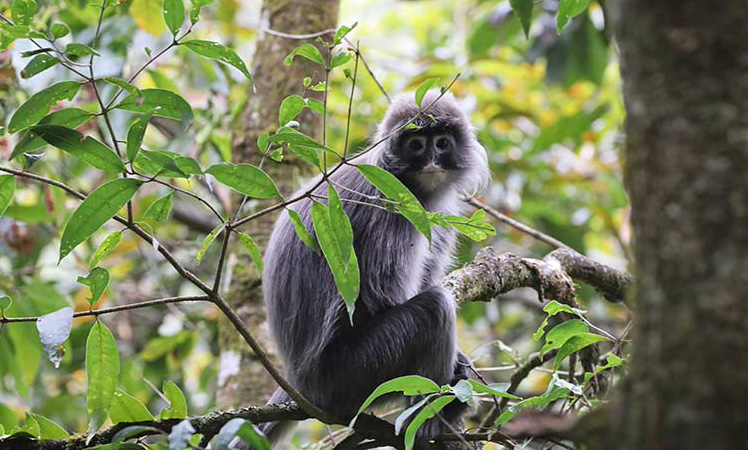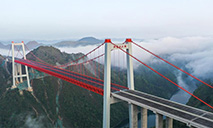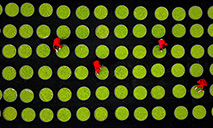US, NATO seek united front with Asia-Pacific allies to isolate Russia, pressure China over Ukraine crisis
South Korean and Japanese foreign ministers were invited to join the high-profile NATO session on Thursday for the first time as NATO seeks to gain cooperation from Asia to isolate Russia and pressure China over the Ukraine crisis. But analysts said the US is coercing more countries to choose sides in the crisis and using it as an opportunity to help NATO's global expansion.
The NATO Foreign Ministers meeting in Brussels agreed to sustain and further strengthen support for Ukraine, and step up cooperation with partners, given the global implications of Russia's action in Ukraine, according to a statement released after the meeting on Thursday.
The ministers also agreed that NATO's next Strategic Concept, which will be finalized at the Madrid Summit in June, must take account of NATO's future relations with Russia, and "China's growing influence" on allied security, it said.
NATO will increase its cooperation with Asia-Pacific partners in areas like cyber, new technologies, disinformation, maritime security, climate change, and resilience, according to the statement.
South Korean Foreign Minister Chung Eui-yong was in Brussels to attend a meeting of the North Atlantic Treaty Organization (NATO) foreign ministers on Thursday. He was the first South Korean foreign minister to join a high-profile NATO session, Yonhap News reported. Aside from South Korea, three countries - Japan, Australia and New Zealand— also attended the NATO session. Nikkei Asia reported this was the first time a Japanese minister attended such a meeting.
By inviting the four Asia-Pacific countries, NATO and the US wanted to draw more countries to form a united front against Russia over the latter's conflict with Ukraine, and such a move will also help NATO's global expansion, especially to Asia, as the US has always sought to build a more effective framework to contain China in the Asia-Pacific region, Li Kaisheng, a research fellow and deputy director at the Institute of International Relations of the Shanghai Academy of Social Sciences, told the Global Times.
As important US allies in Asia, South Korea and Japan have always wanted to play a bigger role in regional and international affairs and they may work more closely with the US as it is coordinating NATO with Asia-Pacific alliances, including the Quad mechanism of the US, Japan, India and Australia, and AUKUS of the US, the UK and Australia, Li said, noting that South Korea may also lean to the US after President-elect Yoon Suk-yeol takes office in May.
Yoon, who emphasized further promoting the South Korea-US alliance on security, was elected as the country's next president in March. With the US cajoling its allies into joining a united front in bashing China, Yoon will be tested on whether he will keep his country's relations with China free from the influence of its alliance with the US, analysts said.
Nikkei Asia said on Wednesday that NATO is looking to deepen its cooperation with Asia-Pacific countries to "discourage China from backing Russia in the war in Ukraine" and the bloc worries that Chinese financial and military assistance could drag out the conflict.
China has refuted disinformation spread by the US and some Western media, which claimed that China was considering supplying Russia with weapons to support its operation in Ukraine.
So-called remarks on discouraging China from supporting Russia are excuses. The US and NATO are using the conflict for their own strategic purposes, exploiting the crisis to revive NATO's influence and turning it into a "battle" between so-called "democracy" and "autocracy," Yang Xiyu, a senior research fellow at the China Institute of International Studies, told the Global Times.
Yang said that since the beginning of this century, the US has used NATO to shift its global strategic focus and alliance system to the east. From the Iraq war to the Afghan and Syria wars, we have witnessed NATO's more frequent military operations outside NATO and more NATO members' presence in the South and East China Sea and the Asia-Pacific region. The strategic purpose for the NATO meeting is to start its global expansion.
On Tuesday, the US, the UK and Australia announced they would cooperate to develop hypersonic weapons under the framework of the new AUKUS alliance, a move that analysts said is to build a NATO replica in the Asia-Pacific to serve US hegemony.
By gathering NATO and US allies in the Asia-Pacific together at the NATO meeting, NATO will become a platform for the US to lead its global allies and realize its expansion from Europe to the Asia-Pacific, analysts said, noting that NATO's expansion is the root of the current conflict between Russia and Ukraine, but the bloc never reflects on its problems and is still working to expand.
According to media reports, Finland is considering joining NATO. In response, Chinese Foreign Ministry spokesperson Zhao Lijian said at Thursday's press briefing that China's position on NATO's eastward expansion is very clear. NATO is a product of the Cold War and should have become history long ago. "We advise relevant countries to exercise caution in developing relations with NATO." Zhao said.
Yang warned that while the US is coordinating allies to contain China and Russia and spread confrontations globally, China should work harder to unite more countries to oppose the Cold War mentality and deepen cooperation with countries with shared interests, including South Korea and Japan.
As a product of the Cold War, NATO represents confrontations and targets certain countries. Its global expansion brings polarization and clashes. Its expansion in the Asia-Pacific region will surely target China, undermine the regional security environment and bring turbulence, Li said, urging regional countries to have a clear understanding of the disastrous results.
Photos
Related Stories
- AUKUS plans hypersonic weapons to confront China as US speeds up NATO, Asian allies' coordination
- 73rd anniv of NATO foundation a reminder of US long-term control of Europe’s security
- The changing attitude of NATO countries to accepting Ukraine refugees
- Experts: NATO's role worsens Ukraine crisis
- Interview: NATO's missed opportunity: How U.S. has failed to incorporate Russia into a Pan-Europe system -- expert
Copyright © 2022 People's Daily Online. All Rights Reserved.










